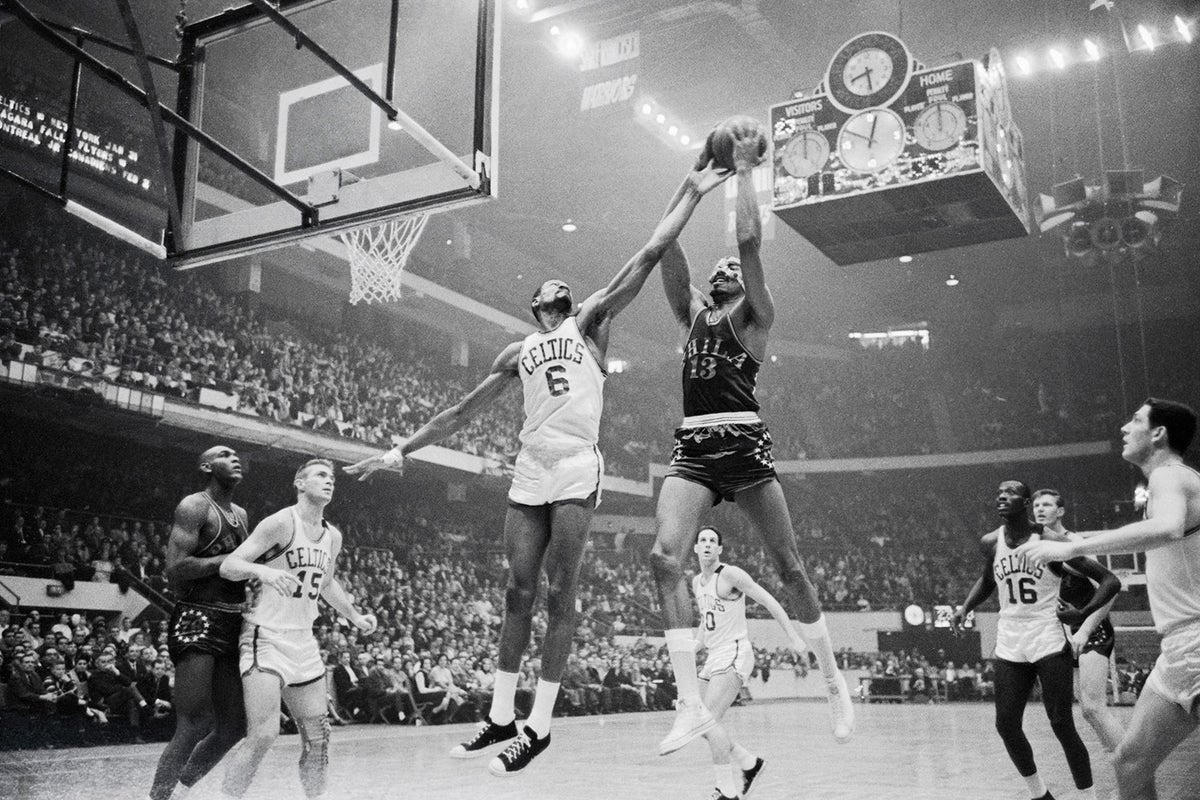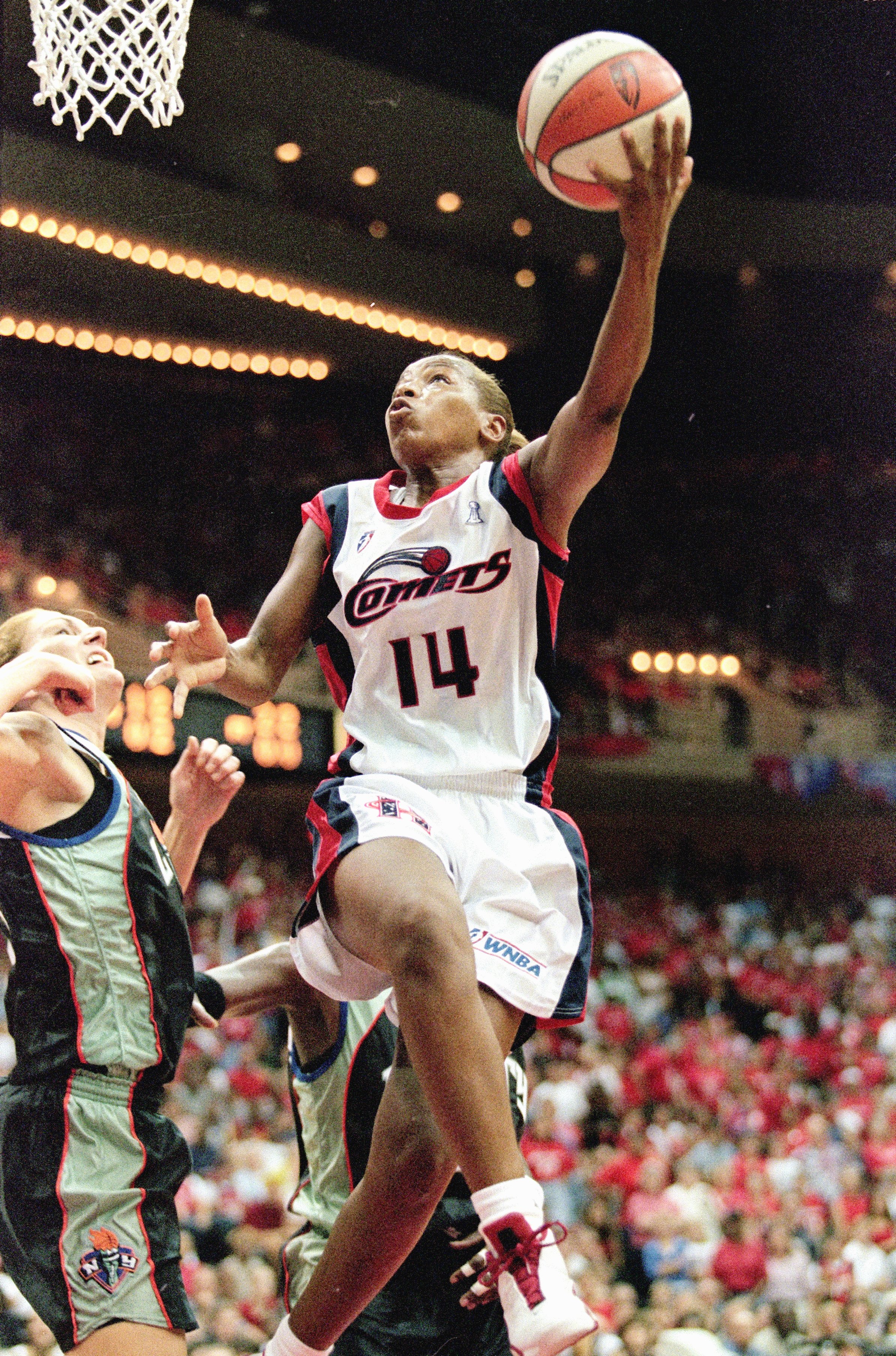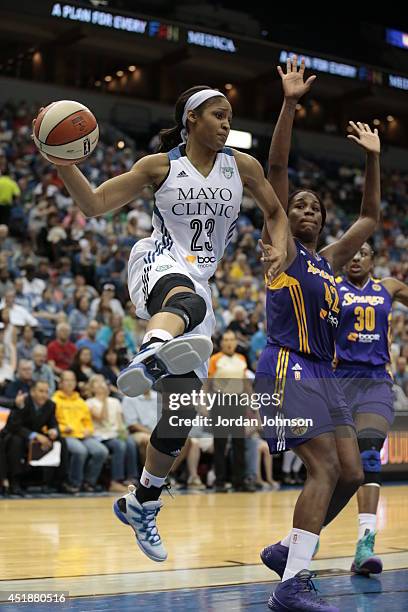ceiling raiser wrote:Who do you guys think would be the all-time leaders in +/- per game?
So, was thinking on this, and did a super-simple analysis we can use for a starting point.
What I've done is take historically noteworthy run just looking at the team's margin of victory in seasons of a player's career. This is all-season, because I find that to be a bit more interesting, but I could list out RS or PS if request.
Obvious limitation up front: Not focusing on how much the player in question actually played. You could do a better estimate based on this, but it would take more work.
Without further ado:
Russell-era Boston Celtics ('56-57 to '68-69): +6.45 (Note that Russell missed about half of that first season)Duncan-era San Antonio Spurs +6.15
Magic-era Los Angeles Lakers ('79-80 to '90-91): +6.08 (Note that I'm not including his mid-90s comeback)
Mikan-era Minneapolis Lakers ('48-49 to '5454): +5.89 (Note that pre-NBA years and his later comeback are not included)
Jordan-era Chicago Bulls ('84-85 to '92-93 & '95-96 to '97-98): +5.00 (Note that he missed much of '85-86, I'm not including '94-95 or the Wiz years).
Curry-era Golden State Warriors ('09-10 to present): +3.52 (Note he missed the vast majority of time in '19-20)
LeBron over his entire career ('93-94 to present): +3.30
Unless I'm forgetting someone then, looks to me like the Russell's teams had the greatest domination in NBA history and thus he's a strong contender for this "+/- Per Game" championship belt.
The big question then is whether someone with a big On/Off, and a low enough MPG to make the difference.
If we just look at guys for whom we have this data for:
Duncan: Personal PM/G: +6.09, Team PM/G +6.15
Curry: Personal PM/G: +6.55, Team PM/G +3.52LeBron: Personal PM/G +5.04, Team PM/G +3.30
Note that this isn't saying that Duncan's team literally had a better rate when he went to the bench, it's saying the team was slightly above 0 when he was out, which is a reasonable thing for a superstar on a champion.
When we consider how this looks, it seems quite plausible that Magic or Mikan or Jordan might come out on top over Russell.
Of course, I can't help but highlight Curry here. The idea that people are still thinking of Curry as a guy with more help than everyone else in history is just plain galling. Flat out, it's entirely possible that he would take the title of best PM per Game despite the fact that his team's cume PM/G really isn't that strong.
Let me end by mentioning WNBA data. In WNBA history, there are two players who have dominated the league way ahead of everyone else, Cynthia Cooper & Maya Moore.Here's how they look by these measures:
Cooper-era Houston Comets (1997-2000): Personal PM/G: +9.84, Team PM/G +10.14 (Note that I'm not including her later comeback)
Moore-era Minnesota Lynx (2011-2018): Personal PM/G: +7.87, Team PM/G +6.66

Remember that the WNBA plays 40 minute games, so multiply these numbers by 1.2 if you want to try to apples-to-apples that. Also, there are several WNBA superstars with Personal rates in the +4.5 to +5.0 range, which when multiplied by 1.2 would put them with any of the Personal PM/G of anyone we've got data for other than Curry, Kawhi & Duncan.
What this is telling me is that Cooper & Moore were more dominant - by this sort of metric - in the WNBA than probably anyone in NBA history was in the NBA. This is something you'd expect to be possible in leagues with less talent of course, which makes us ask about how deep into the pre-NBA world you need to go to before you see teams this dominant.
I feel like Mikan in the NBL & BAA years might be there.
Earlier than that, we run into multiple issues with the most general being that we didn't have a top pro league that had all the best talent in basketball. The great teams before that made most of their money as barnstormers (Original Celtics, New York Renaissance, Harlem Globetrotters), and when you're barnstorming the average competition is much weaker.
But there's also the matter of there being much lower scoring so for these teams to have any chance in this competition we'd probably have to go with a more "times divide" approach rather than "plus minus", as in judging by ratio rather than net difference.


